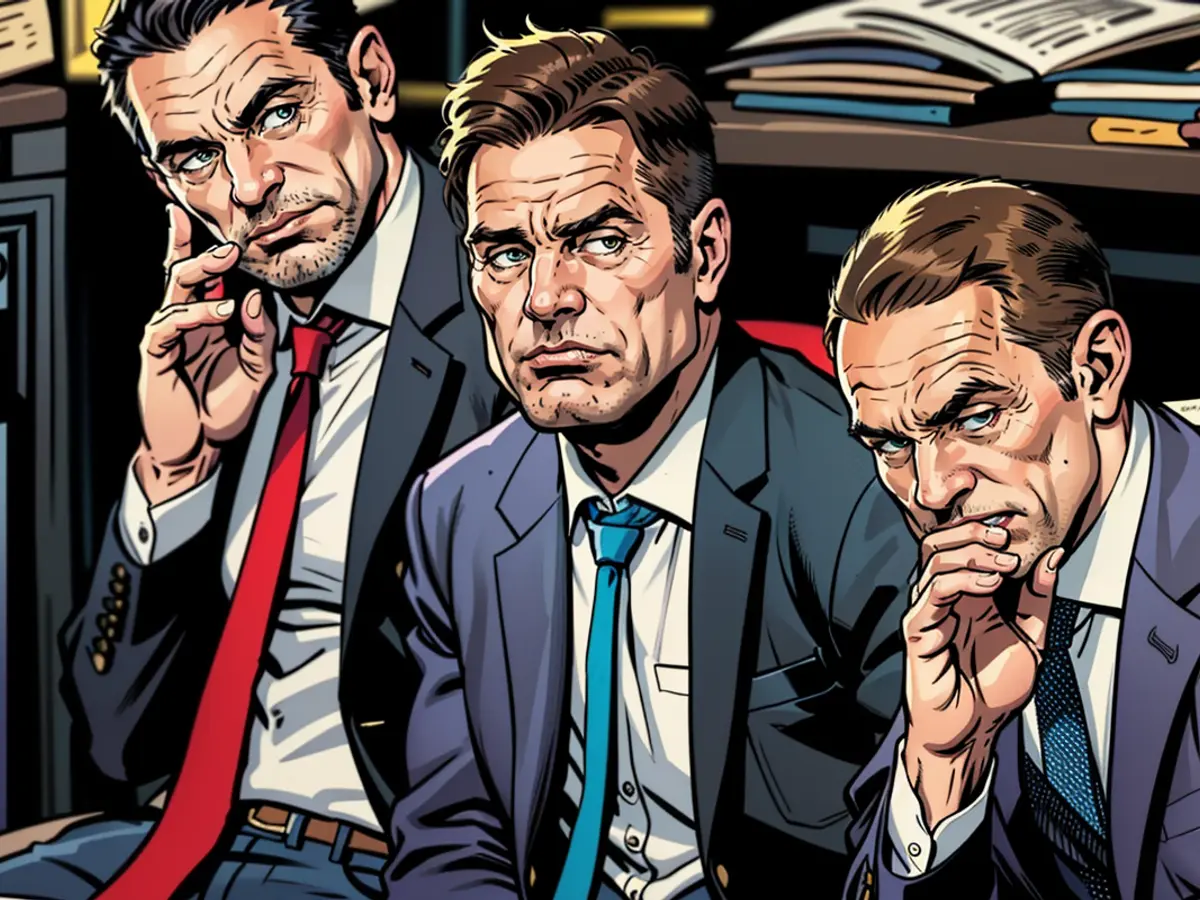Dispute over federal budget - Budget negotiations: Traffic light starts into decisive week
The traffic light coalition begins a crucial week for negotiations on the German federal budget 2025. The talks between Chancellor Olaf Scholz (SPD), Finance Minister Christian Lindner (FDP), and Economy Minister Robert Habeck (Greens) were also intensively continued over the weekend. The goal of the federal government is to pass the budget for the coming year in the cabinet by July 17. In order for this to succeed, at least a political agreement on the key points must be reached in the coming days.
Experts in the Finance Ministry need roughly two weeks to translate such an agreement into a draft. The time window is therefore becoming increasingly narrow. Parties expressed concerns again about possible cuts to the federal budget.
The negotiations have been difficult lately. FDP Finance Minister Lindner insists on strict savings plans and categorically rejects any relaxation of the debt brake. Politicians from the Chancellor party SPD, on the other hand, have recently demanded more room for maneuver for taking on debt.
SPD open to special funds
SPD Chairman Lars Klingbeil made it clear over the weekend in the "Süddeutsche Zeitung" that his party, instead of the abolition of the debt brake, also proposes a credit-financed special fund for investments.
"First, all ministries need to look at where they can save. It's clear, however, that we can't cut 30 to 40 billion euros from the core budget," explained the SPD Chairman. He expects that now all possibilities "ideology-free" will be discussed. "The BDI has recently proposed a special fund for investments. The SPD is ready to talk about it."
The Federation of German Industries (BDI) complained about a massive investment backlog in Germany and proposed billion-euro special funds - that is, credit-financed extra taps in addition to the federal budget and outside the debt brake. Lindner has rejected this so far.
Billion-euro budget gaps
The negotiators of the traffic light coalition have been trying for weeks to stop a billion-euro gap in the budget planning for 2025. Previously, the Finance Minister was not able to make progress alone with the expert ministers, as they refused to adhere to savings plans. A consensus is also necessary because the draft, after the cabinet, will also be extensively debated in the Bundestag. It is to be decided there in December.
From the Finance Ministry, it was only said on Sunday that the ongoing negotiations would not be commented on. From the FDP fraction, there were hints that the time plan was not the most important thing at the negotiations.
In response to a query, whether a consensus could be reached in the now beginning week, the deputy FDP fraction leader Christoph Meyer told the German Press Agency: "What's more important than a specific deadline is a good result." The budget draft should also reflect a "dynamic package for the economy," Meyer explained. "Therefore, thorough discussions are preferred over hasty decisions."
The coalition is in agreement that for the budget of the coming year, the economic turnaround and internal and external security should be priorities. The adherence to the debt brake is possible: "With courage in prioritizing and consolidation, we can achieve the goals that we as a coalition have set, while adhering to the debt brake." SPD chief Klingbeil's proposal was rejected by Meyer. If there are no "effective structural reforms" and the budget is not efficiently consolidated, the question of a special fund arises, Meyer emphasized.
The Greens and the Left are warning against "austerity measures."
Andreas Audretsch, deputy faction leader of the Greens, urged, "to put all possibilities on the table and not only focus on savings." "Austerity measures are not an option," Audretsch told dpa. The country must invest in climate protection and future technologies and at the same time not endanger social cohesion, explained the Green politician. This also means that it is the task of the coalition to protect children and families better from poverty with its next budget.
The Left, including the German Trade Union Federation and the Climate Alliance Germany, warned again over the weekend against a rigid spending and reduction course. "To pursue a strict spending and reduction course now reduces political room for maneuver, aggravates problems, and harms our country," explained DGB board member Stefan Körzell. The debt brake must be suspended and "fundamentally reformed."
- The traffic light coalition is facing a critical week for negotiating the German federal budget 2025.
- Christian Lindner, the Finance Minister from the FDP, has been pushing for strict savings plans and rejects relaxing the debt brake.
- Opposite to this, the SPD has been demanding more flexibility for taking on debt.
- Lars Klingbeil, the SPD chair, suggested a credit-financed special fund for investments rather than abolishing the debt brake.
- The BDI, representing German industries, supported this idea by proposing billion-euro special funds for investments.
- The challenge lies in closing the billion-euro gap in budget planning for 2025, which the coalition has been trying to tackle for weeks.
- Time is becoming a constraint with only two weeks needed to translate the agreement into a draft after reaching a political accord.
- Christoph Meyer, deputy FDP fraction leader, emphasized that a good result is more important than meeting a specific deadline.
- The coalition consensus is that the economic turnaround and internal and external security should be prioritized in the coming year's budget.
- The Left, along with DGB and Climate Alliance Germany, has warned against a rigid spending and reduction course, advocating the suspension and reform of the debt brake.
- Green politician Andreas Audretsch urged to explore all possibilities beyond savings, emphasizing the need to invest in climate protection and future technologies while safeguarding social cohesion.








